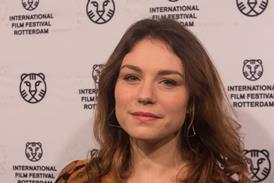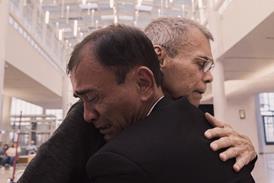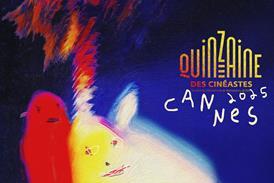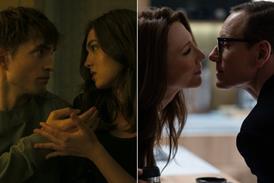Dir: Maria Ripoll. 2003. Spain-France. 105mins.
Utopia adds to a growing body of stylish Spanish genre films and, with the right marketing and distributor Hispano Foxfilm behind it, will likely follow in their footsteps to healthy returns at the local box office. That said, it had a downbeat opening weekend, taking $342,000 from 180 screens. Foreign sales through France's TF1 should be brisk, however, more so based on secondary-market potential for genre films in any language, and the well-known acting talent on display including Karyo (The Good Thief), Sbaraglia (Intacto) and Nimri (Sex And Lucia).
Like Juan Carlos Fresnadillo's Intacto before it, a sale on remake rights is also a possibility - and why not with Maria Ripoll back in the director's chair' This esoteric supernatural-tinged thriller marks her Spanish-language feature debut, and proves her genre versatility following romantic comedies Twice Upon A Yesterday and Tortilla Soup.
Adrian (Sbaraglia) has had premonitory powers since he was a child and was taken in by a cult of clairvoyants called Utopia. He, too, sees dead people, but having been unable to save several of them - including his own parents - from their fates, he fears and flees his powers. Dedicated to saving the lives of certain chosen people, Utopia calls on Adrian to fulfil one final rescue: Angela (Nimri), a traumatised woman embraced by a South American guerrilla sect but unaware of the murderous rituals they enact. Angela's family has meanwhile hired Herve (Karyo), a policeman rendered blind in an explosion which killed his family and had been predicted moments earlier by Adrian, to rescue and de-program Angela. Ultimately, however, Herve proves more preoccupied with taking revenge on Adrian.
Utopia turns genre gender stereotyping on its tail by making Angela physically more potent than either of her rescuers. The expressive Nimri gives a nicely understated performance, and Sbaraglia is appealing as the wise yet vulnerable saviour in need of saving himself. A strong Karyo plays blind credibly, but his character's scripted flip-flops between coldly shrewd detective and vengeful widower are dubious.
Still, the complex and coherent story should prove a calling card for up-and-coming scripting team Royo and Pozuelo (The Art Of Dying). However, by packing so much in they necessarily hurry through some ideas and recur to a few caricatures, notably the Latin baddies and corrupt cops. The tale breaks genre ranks with a theme of goodness and light, and an undeniably happy ending.
With a $6.4m budget behind her Ripoll has opted for an intentionally showy style. She infuses the entire film with a blue-tinged and washed-out visual aesthetic until its golden-hued finale that is meant to underscore the unsettling harshness of both the real world and Adrian's otherworldly visions. Ripoll mostly avoids stumbling into artsy excess except during for one shoot-out scene, set to jazz music and out of place with the rest of the film.
Fast-paced editing and flashing visual and sound effects keep the action pumping and the suspense building. Several jolting scares do their job, the first coming before the opening credits have finished rolling. Closing credits are accompanied by a catchy tune composed and performed by Nimri.
Prod cos: Alquimia Cinema, Fidelite Prods
Sp dist: Hispano Foxfilm
Int'l sales: TF1 International
Exec prods: Ana Cassina, Ricardo Garcia Arrojo
Prod: Francisco Ramos
Scr: Curro Royo, Juan Vicente Pozuelo
Cinematography: David Carretero
Ed: Nacho Ruiz Capillas
Prod des: Sergio Hernandez
Main cast: Leonardo Sbaraglia, Najwa Nimri, Tcheky Karyo, Fele Martinez, Hector Alterio


















No comments yet